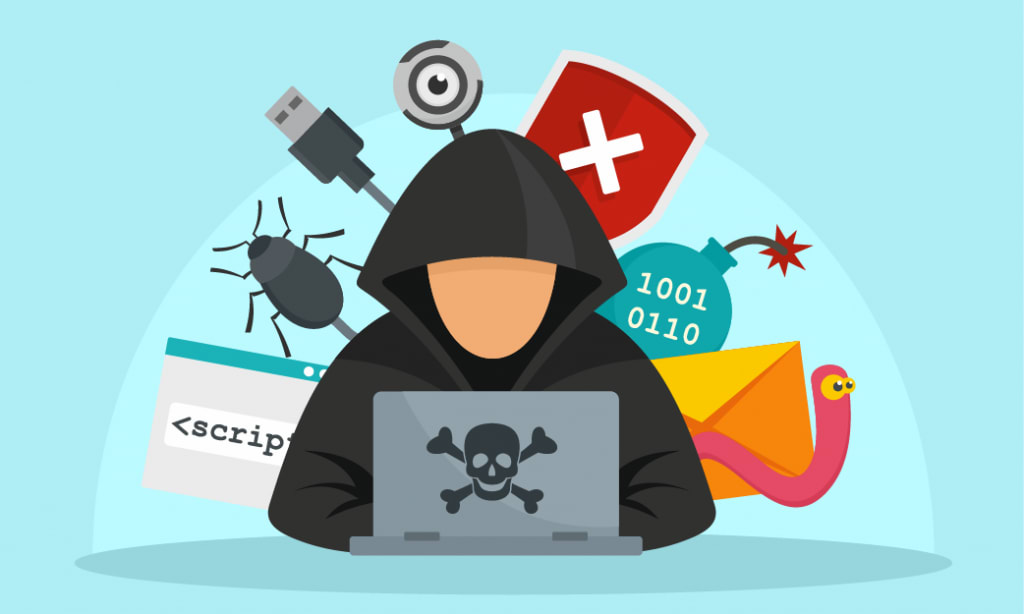Cybersecurity
Protecting Businesses and Consumers in a Digital World

Cybersecurity has become a critical issue in today's digital world. With the increasing reliance on technology and the internet, the risk of cyber attacks has grown tremendously. As a result, businesses and consumers must take proactive steps to protect themselves from these threats.
In this article, we will explore the importance of cybersecurity and the steps that businesses and consumers can take to safeguard themselves in the digital world.
The Importance of Cybersecurity
Cybersecurity is the practice of protecting computer systems, networks, and digital data from unauthorized access, theft, or damage. It is a critical issue for businesses and consumers alike, as cyber attacks can have devastating consequences.
For businesses, cyber attacks can result in the theft of sensitive information, such as customer data and intellectual property. These attacks can also cause significant financial losses, damage to reputation, and legal liabilities. According to a report by the Ponemon Institute, the average cost of a data breach for businesses is over $3 million.
For consumers, cyber attacks can result in identity theft, financial fraud, and loss of personal data. In some cases, cyber attacks can also result in physical harm, such as the case of medical device hacks or automobile hacking.
Given the risks associated with cyber attacks, it is crucial for both businesses and consumers to take proactive steps to protect themselves from these threats.
Steps Businesses Can Take to Protect Themselves
Businesses can take several steps to protect themselves from cyber attacks. These include:
Conducting Regular Risk Assessments: Businesses should regularly assess their cybersecurity risks and vulnerabilities to identify potential threats and weaknesses. This can help businesses prioritize their security efforts and take proactive steps to address any issues.
Implementing Strong Password Policies: Passwords remain one of the weakest links in cybersecurity. Businesses should implement strong password policies that require employees to use complex passwords and change them regularly.
Providing Employee Training: Employees can inadvertently cause cyber breaches, such as through phishing attacks or social engineering scams. Businesses should provide regular cybersecurity training to employees to help them identify potential threats and take proactive steps to prevent them.
Implementing Multi-Factor Authentication: Multi-factor authentication (MFA) adds an additional layer of security beyond passwords. MFA can include factors such as biometric authentication, smart cards, or tokens.
Regularly Updating Software and Security Patches: Businesses should regularly update their software and security patches to ensure that any vulnerabilities are addressed promptly.
Conducting Regular Penetration Testing: Penetration testing involves simulating cyber attacks to identify potential vulnerabilities and weaknesses in a system. Regular penetration testing can help businesses identify and address any weaknesses before they can be exploited by attackers.
Steps Consumers Can Take to Protect Themselves
Consumers can also take several steps to protect themselves from cyber attacks. These include:
Using Strong Passwords: Consumers should use strong passwords and avoid using the same password across multiple accounts. They should also change their passwords regularly.
Being Wary of Phishing Scams: Phishing scams involve sending fraudulent emails or messages to trick users into providing sensitive information. Consumers should be wary of any unsolicited messages and avoid clicking on any links or providing personal information unless they are certain of the sender's identity.
Regularly Checking Financial Statements: Consumers should regularly check their financial statements for any unauthorized transactions or suspicious activity.
Installing Antivirus Software: Antivirus software can help detect and prevent malware from infecting a consumer's computer or mobile device.
Keeping Software Updated: Consumers should regularly update their software and security patches to ensure that any vulnerabilities are addressed promptly.
Avoiding Public Wi-Fi: Public Wi-Fi can be a hotspot for cyber attacks. Consumers should avoid using public Wi-Fi to access sensitive information or use a virtual private network (VPN) when using public Wi-Fi.
About the Creator
Abdullah Javaid Khan
Im a Passionate Writer with a talent for crafting compelling stories and insightful commentary. With 2 Years Of experience in the writing industry,i have honed skills across a range of genres,from fiction to facts,journaslism to poetry.






Comments
There are no comments for this story
Be the first to respond and start the conversation.